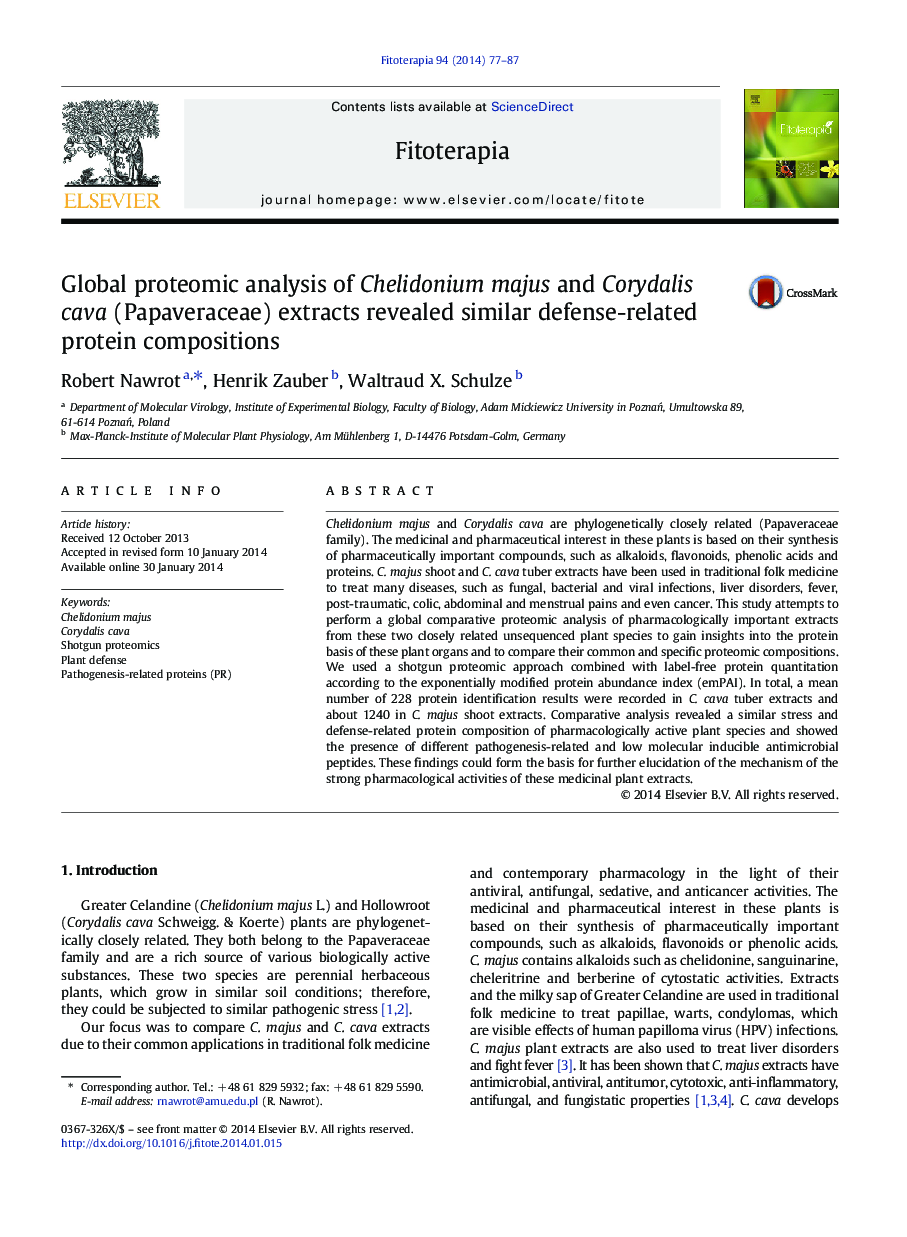| کد مقاله | کد نشریه | سال انتشار | مقاله انگلیسی | نسخه تمام متن |
|---|---|---|---|---|
| 5831035 | 1559651 | 2014 | 11 صفحه PDF | دانلود رایگان |

Chelidonium majus and Corydalis cava are phylogenetically closely related (Papaveraceae family). The medicinal and pharmaceutical interest in these plants is based on their synthesis of pharmaceutically important compounds, such as alkaloids, flavonoids, phenolic acids and proteins. C. majus shoot and C. cava tuber extracts have been used in traditional folk medicine to treat many diseases, such as fungal, bacterial and viral infections, liver disorders, fever, post-traumatic, colic, abdominal and menstrual pains and even cancer. This study attempts to perform a global comparative proteomic analysis of pharmacologically important extracts from these two closely related unsequenced plant species to gain insights into the protein basis of these plant organs and to compare their common and specific proteomic compositions.We used a shotgun proteomic approach combined with label-free protein quantitation according to the exponentially modified protein abundance index (emPAI). In total, a mean number of 228 protein identification results were recorded in C. cava tuber extracts and about 1240 in C. majus shoot extracts. Comparative analysis revealed a similar stress and defense-related protein composition of pharmacologically active plant species and showed the presence of different pathogenesis-related and low molecular inducible antimicrobial peptides. These findings could form the basis for further elucidation of the mechanism of the strong pharmacological activities of these medicinal plant extracts.
145
Journal: Fitoterapia - Volume 94, April 2014, Pages 77-87